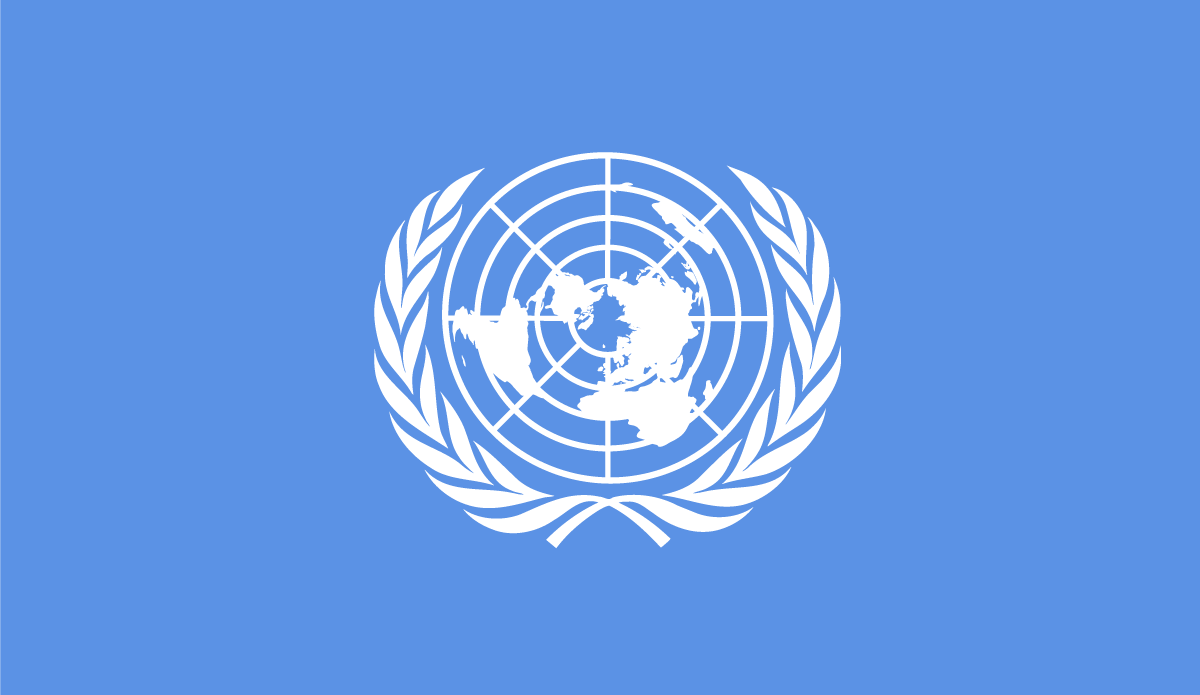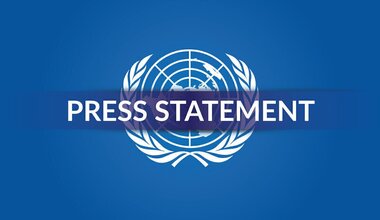UN Security Council extends AMISOM mandate, amends sanctions regime
New York – The Security Council today authorized the African Union to maintain deployment of the African Union Mission in Somalia (AMISOM) until 30 November 2015, while also amending several aspects of the sanctions regime against the strife-torn east African nation.
Through resolution 2182 (2014), adopted under the United Nations Charter’s Chapter VII by a vote of 13 in favour, 0 against and 2 abstentions (Jordan, Russian Federation), the Council asked the Secretary-General and the African Union to review the impact of the temporary surge outlined in resolution 2124 (2013) and make recommendations on the next steps in the military campaign by 30 May 2015.
As regards the charcoal ban, in place since 2012, the Council authorized States, for a 12-month period, to inspect vessels in territorial waters and on the high seas which they had “reasonable grounds” to believe were carrying charcoal from Somalia, in violation of that ban, or weapons or military equipment, in violation of the arms embargo. States were authorized to seize and dispose of any prohibited items. Such authorizations applied only with respect to the situation in Somalia, the Council said, deciding to review those measures after six months.
By other provisions, the Council renewed the partial lifting of the arms embargo for the security forces of the Federal Government until 30 October 2015, requesting Somalia to report to the Council by 30 March 2015 and again by 30 September 2015 on the structure of those forces and infrastructure in place to ensure the safe storage, registration, maintenance and distribution of military equipment.
In addition, it renewed the mandate of the Somalia and Eritrea Monitoring Group until 30 November 2015 and requested submission of reports on Somalia and Eritrea sanctions by 30 September 2015. It also renewed the humanitarian exemption until 30 October 2015, requesting the Emergency Relief Coordinator to report to the Council by 1 October 2015 on the delivery of assistance.
Speaking after action, the representative of the United Kingdom welcomed the resolution’s adoption, stressing that the fight against Al-Shabaab was at the heart of the naval operation discussed in the text. Since the ban had been put in place, the illegal charcoal trade had increased, with the Monitoring Group estimating that Al-Shabaab had kept up to one-third of the revenue from the $250 million trade. “Charcoal is giving Al-Shabaab a lifeline,” he said. On 8 October, the President of Somalia had written to the Council, requesting assistance.
“Today we’ve responded to that call for help,” he said, highlighting the need for the Transitional Federal Government to notify the Secretary-General of any State taking part in the naval interdiction, with the Secretary-General then obliged to inform the wider United Nations membership. Today’s adoption showed the Council’s determination to take practical steps in response to the terrorist threat.
Jordan’s representative supported the goals of bringing stability and security to Somalia, and the Transitional Federal Government’s efforts to address the import and export of charcoal and illegal weapons to terrorist groups. Operative paragraph 15 outlined that any State could inspect ships, both in Somali waters and on the high seas — a matter that was subject to legal constraints and considerations. Such actions on the high seas could be used for political aims that went beyond the goal of the resolution.
Further, the scope of authorization in the paragraph went beyond what had been requested by the President of Somalia, which raised questions, as did the insistence on giving open authority to any State, he said. For inspections to be conducted on “reasonable grounds” was not a sufficient guarantee to prevent the abuse of the authorization. It would have been better to use “objective controls”, such as reliable information, rather than leave criteria open to subjectivity. He hoped the limits included in operative paragraph 20 would be included in the Monitoring Group’s report. Resolutions should not be used to manipulate international legal rules.
The representative of the United States strongly supported the resolution, which targeted the most serious causes of instability in Somalia and reflected the Council’s knowledge that the international response must be comprehensive. His Government supported strong language on the commitment to eliminate all funding sources for Al-Shabaab. Charcoal had long been a concern for the Council. By renewing AMISOM’s mandate, the Council would build on the momentum of troop surges it had authorized last year. The Monitoring Group and limited arms embargo suspensions would also help monitor arms flows. Somalia was on the path to a stable future, and it was essential for the Council to remain engaged in its progress.
China had voted in favour of the text, according to its representative, who stressed the need to listen to the views of all sides. In consultations on the resolution, the Council should have given importance to the concerns raised by Arab States on aspects of the text and tried to reach maximum consensus. The text should not be seen as establishing customary international law. Any inspection of vessels required the consent of the flag States’ concerned. The text should be fully implemented, and in doing so, States must adhere to international law, protecting the rights of flag States and other countries concerned.
The Russian Federation’s representative said he had abstained during the vote. His Government would have been ready to support the resolution if some provisions had not been based on statements in the last report by the Monitoring Group that were not supported by facts. Experts should be guided by verified facts and not make conclusions based on “assumptions and rash accusations”. The way in which work on the draft had been conducted, especially in the final stages when the authors had made a point to disregard other members’ views, did not reflect well on the British delegation. More attention should have been paid to issues raised by Arab countries and the Gulf Cooperation Council.
The representative of Argentina supported the draft, agreeing on the need to reaffirm AMISOM’s mandate and the ban on charcoal imports and exports, having taken into account the President’s request for assistance. At the same time, the measure authorized was of an exceptional nature, based on the exclusive jurisdiction of a flag State over its ships on the high seas. She underlined that the authorization given had been limited to that situation; it did not extend to any other circumstance. It would not affect the rights or responsibilities of States under international law, including the 1982 United Nations Convention on the Law of the Sea, with respect to any other situation. Nor did it provide a constitutional basis for international customary law. Authorization was limited to one year. It should normally be superseded with another type of cooperation with Somalia.
Lastly, Somalia’s representative strongly welcomed the resolution’s adoption, especially the renewal of AMISOM’s mandate and appreciated how the Council had always taken up Somali issues. “We are glad we can see at least a glimmer of light at the end of the tunnel,” he said, welcoming the maritime interdiction of charcoal from Somalia. Illegal charcoal exports provided an illegal lifeline to Al-Shabaab, he said, which was holding back his country’s transition to peace and stability. Today’s text would help the Transitional Federal Government ensure that Al-Shabaab’s days were numbered.
Noting that Somalia would ensure the resolution was implemented in a responsible manner, he said no State would be allowed to conduct interdictions without Somalia’s consent and that it would work to ensure that no legitimate commerce was disrupted through the manipulation of the resolution.
The meeting began at 10:05 a.m. and ended at 10:35 a.m.
Please click on the link for the full text of the Resolution: http://bit.ly/1yBKZ7I
 UN
UN





